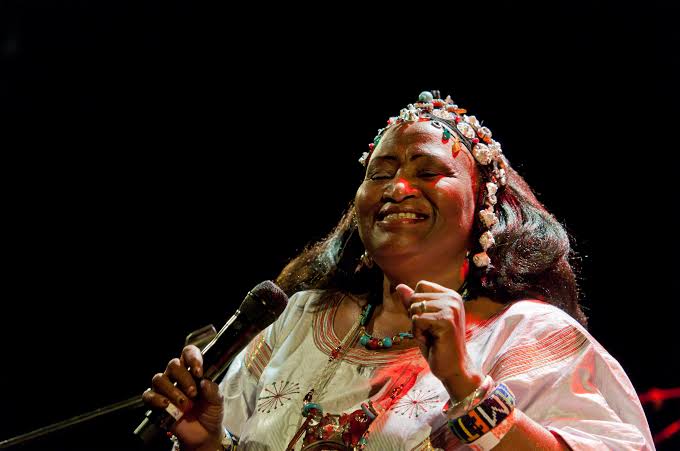Khaira Arby was a Malian singer, widely known as The Nightingale of Timbuktu.
Daughter of a Tuareg father and a Songhai woman, Arby. At the age of eleven, she started singing in a musical group from the city of Timbuktu. She had started singing at a young age for weddings and traditional festivals. Cultural policy protected and advanced traditional Malian culture throughout Moussa Traoré’s administration.
Arby departed Timbuktu to join the creative group in Gao, a city located 400 kilometers to the east. Although she was under pressure from her father and her husband to give up her artistic endeavors, she eventually continued her musical career with the band Badema National. Arby later remarried after reluctantly divorcing her husband.
Arabic, Songhai, Tamachek, and Bambara were among the languages that Arby wrote and sung in. Her voice was gruff. Her opinions touched on delicate subjects. She pushed for peace even though Tuareg uprisings occurred back-to-back in 1990–1996; 2006; and 2007–2009. She sung of women’s rights to independence, education, fulfillment, and happiness, as well as against female genital mutilation. She combined traditional instruments with electric ones in her music, such as the n’goni, njarka, and drums.
In 2012, jihadists attacked northern Mali and conquered the Sahel with the aid of Tuareg ex-mercenaries who had just returned from Libya. Arby fled and temporarily resided in Bamako.
Jihadists threatened her family and damaged her instruments in Timbuktu. She went back to Timbuktu in 2015, three years later. She said “Our religion has never banned music. The Prophet was greeted with songs when he arrived in Mecca. Cutting music is like keeping us from breathing. But we keep fighting, and it’s going to go, inch’Allah.”
We celebrate your contributions to the Black race, Khaira Arby!



